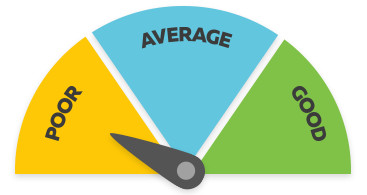Pulp and Paper Mill Operator
Kaiwhakamahi Mīra Puru Rākau
Alternative titles for this job
Pulp and paper mill operators operate, maintain and repair machines that make pulp and paper.
Pay
Trainee pulp and paper mill operators usually earn
$49K-$50K per year
Qualified pulp and paper mill operators usually earn
$50K-$100K per year
Source: Competenz and Stats NZ, 2017
Job opportunities
Pay
Pay for pulp and paper mill operators varies depending on experience.
- Trainee pulp and paper mill operators usually earn between minimum wage and $50,000 a year.
- Qualified pulp and paper mill operators can earn between $50,000 and $100,000.
Pulp and paper mill operators may also earn shift allowances.
Sources: Competenz 2017; Stats NZ, '2013 Census data', 2017.
- PAYE.net.nz website - use this calculator to convert pay and salary information
- Employment New Zealand website - information about minimum wage rates
(This information is a guide only. Find out more about the sources of our pay information)
What you will do
Pulp and paper mill operators may do some or all of the following:
- operate machinery and equipment
- use computer-controlled systems to check the performance of machines
- test quality of pulp and paper
- make sure safety requirements are met
- make sure the finished product matches client's expectations
- supervise a team and do administration duties
- repair and correct machinery and equipment.
Skills and knowledge
Pulp and paper mill operators need to have knowledge of:
- how to operate pulp and paper-making machinery
- the production process and how to correct minor faults
- chemical properties and their effect on pulp and paper
- safety procedures.
Working conditions
Pulp and paper mill operators:
- work shifts, as pulp and paper mills usually operate 24 hours a day
- may work 12-hour shifts, with four days on and four days off
- work in pulp and paper mills
- work in conditions that may be hot, dirty and noisy. They may work in enclosed spaces or with chemicals.
What's the job really like?

Marty Potaka
Pulp and Paper Mill Operator
What does your job involve?
“We look after the whole process of manufacturing pulp, right from the de-watering, down to the drying, through to the bailing. In my department there are three of us that run the de-watering and bailing side of the pulp mill and we rotate through the roles."
What do you like about the job?
“Being a pulp and paper production worker means the responsibility of multi-million dollar equipment is on your and your workmates’ shoulders. But I like the challenges of the everyday running of the plant. It keeps you thinking about how you can get the place running better. It makes the job more interesting."
What sort of skills do you need to get into this line of work?
“I think that prior experience in anything to do with mechanical work would certainly help someone wanting to get into this job. I was a fitter and turner before this role, and it helped me a lot with things like problem solving and trouble shooting. It also gave me a bit more of an understanding of how the machines work."
Entry requirements
There are no specific entry requirements to become a pulp and paper mill operator, however a forklift licence is useful.
Pulp and paper mill operators train on the job through an apprenticeship, and can complete a New Zealand Certificate in Pulp and Paper Manufacturing (Level 3 and Level 4) through Competenz.
- Competenz website - New Zealand Certificate in Pulp and Paper Manufacturing
- New Zealand Transport Agency (NZTA) website - find out about forklift licences
- More information about apprenticeships
Secondary education
There are no specific secondary school education requirements to become a pulp and paper mill operator. However, chemistry, construction and mechanical technologies, digital technologies, maths and processing technologies are useful.
Personal requirements
Pulp and paper mill operators should be:
- reliable
- careful
- accurate
- safety-conscious
- able to work well in a team
- able to follow instructions.
Useful experience
Useful experience for pulp and paper workers includes:
- work using machinery and computers
- engineering experience
- any manufacturing experience, especially work in chemical-based manufacturing.
Physical requirements
Pulp and paper mill operators need to be reasonably fit as they spend a long time on their feet.
Find out more about training
- Competenz
- 0800 526 1800 - info@competenz.org.nz - www.competenz.org.nz
What are the chances of getting a job?
Chances of getting a job as a pulp and paper mill operator are poor due to:
- a low turnover of staff, so limited positions are available
- less production because of decreased demand for paper in the digital age
- mills closing or reducing staff because of high electricity costs.
According to the Census, 366 pulp and paper mill operators worked in New Zealand in 2018.
Ageing workforce may create vacancies
According to the Ministry of Business, Innovation and Employment, around 75% of pulp and paper mill operators are aged between 45 and 65. That means at least 5% of operators are expected to retire in the next three years, creating more job opportunities.
One type of employer of pulp and paper mill operators
Pulp and paper mill operators are employed by large pulp and paper milling companies based in the North Island.
Sources
- Competenz website, accessed July 2017, (www.competenz.org.nz).
- de Graaf, P, 'Pulp Mill and 200 Jobs Lost Over Power Hike', 8 December 2016, (www.nzherald.co.nz).
- Eldon website, accessed July 2017, (www.eldon.com).
- Employers and Manufacturers Association, 'Business Confidence Strong, Skills Shortage is a Concern', 07 December 2016, (www.ema.co.nz).
- Maitland, T A, 'Potential Job Losses at Tokoroa's Kinleith Mill', 6 December 2016, (www.stuff.co.nz).
- Ministry of Business, Innovation and Employment, 'Short-Term Employment Forecasts: 2017-2020', May 2017, (www.mbie.govt.nz).
- Radio New Zealand, 'New Power Charges Will Shred Business, says Paper Mill', 12 August 2016, (www.radionnz.co.nz).
- Radio New Zealand, 'Wood-Processing Industry Under Threat - Wood Council', 16 August 2016, (www.radionnz.co.nz).
- Soo, P, digital experience executive, Competenz, Careers Directorate - Tertiary Education Commission interview, July 2017.
- Stats NZ, '2018 Census data', 2019.
- Wood Council of New Zealand, 'Forest Industry's Challenge to Manage Supply', 12 August 2016, (www.woodco.org.nz).
(This information is a guide only. Find out more about the sources of our job opportunities information)
Progression and specialisations
Pulp and paper mill operators may progress into management or supervisory roles.
Last updated 25 March 2025


